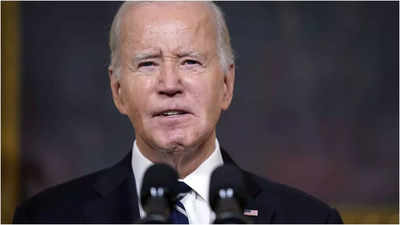A spending bill supported by Donald Trump was rejected in the US House of Representatives, as numerous Republicans defied the president-elect.
The package failed by a vote of 174-235 just hours after it was hastily assembled by Republican leaders seeking to comply with Trump’s demands. A prior bipartisan deal was scuttled after Trump and the world’s richest person Elon Musk came out against it on Wednesday.
Now the United States government is racing toward a shutdown, just days before Christmas, as Trump and Musk scuttled a cross-party deal to keep federal agencies running. With the Friday midnight deadline approaching, millions of Americans, including federal workers, are bracing for disruptions that could stretch into the holiday season. Federal workers, essential services, and the economy as a whole will feel the weight of this impending crisis.
Who is impacted?
A shutdown would likely affect hundreds of thousands of federal workers. An estimated 875,000 could be furloughed, while 1.4 million essential workers, including those in air traffic control and law enforcement, would continue working without pay.
The American Federation of Government Employees (AFGE) warned that these essential workers would face financial strain, as pay is only issued retroactively after the shutdown ends. Contractors, however, may not be guaranteed back pay.
The shutdown would significantly disrupt the lives of federal employees. Many of the over 2 million federal workers, including clerical and administrative staff, would face delayed paychecks. This has caused anguish in past shutdowns, with workers struggling to afford basic necessities. Long lines at food banks were reported during the 2018 shutdown, which lasted over a month. In addition, many workers who are furloughed or required to work without pay will not have financial protections, especially contractors like janitors and cafeteria workers.
Services affected
While Social Security and Medicare benefits will continue uninterrupted, certain government services will be affected. National Park Service (NPS) sites, including parks and monuments, would close to visitors, as seen in previous shutdowns. Similarly, inspections of critical infrastructure, like chemical factories and water treatment plants, may be paused, leading to concerns about public safety.
The US Postal Service will not be impacted, as it operates independently of government funding. However, the shutdown would severely affect other public services, including routine food safety inspections, which may slow down. For some low-income Americans who rely on food assistance programs, like WIC and food stamps, a prolonged shutdown could halt access to benefits.
Impact on federal agencies
During a shutdown, federal agencies are required to prioritize essential functions. For instance, the Health and Human Services Department (HHS) would keep 50,000 employees working, while furloughing more than 40,000. Critical services, such as the National Institutes of Health’s clinical care and the Food and Drug Administration’s monitoring of foodborne illnesses, would continue, but other functions, like routine food safety work, would be reduced to emergency responses.
The Transportation Security Administration (TSA), with 59,000 out of 62,000 employees deemed essential, would continue screening travelers during the busy holiday season. However, TSA spokesperson Carter Langston warned of possible delays due to higher volumes of passengers and limited staffing.
Length of shutdown
The shutdown could last up to two weeks, a typical pay period for federal employees. Pressure would build for a resolution as workers miss paychecks, causing increasing stress on the federal workforce. A longer shutdown could have broader economic consequences, as shutdowns have historically reduced US economic growth by about 0.2 percentage points, according to Thibault Denamiel of the Center for Strategic and International Studies.
The longest shutdown in US history occurred in late 2018 and early 2019, lasting 35 days under the Trump administration. While markets typically remain stable during shutdowns, experts warn that such disruptions could cause wider economic anxiety.
Economic impact
A shutdown’s ripple effect extends beyond federal employees. The broader economy could face a slowdown, with reduced growth and increased uncertainty. Thibault Denamiel noted that private sector impacts could be significant, though markets have proven resilient in the face of past shutdowns. Nonetheless, the potential for a debt default could heighten market anxiety, especially with Trump’s upcoming second term, raising concerns about future economic stability.
